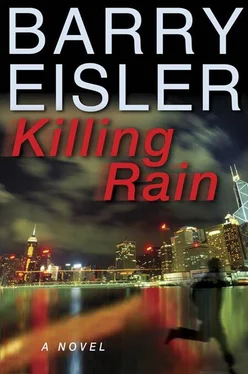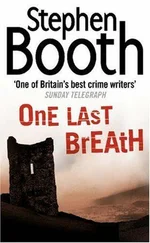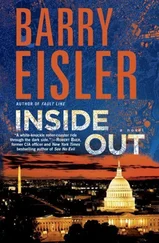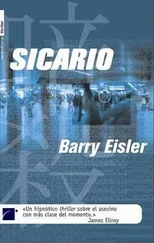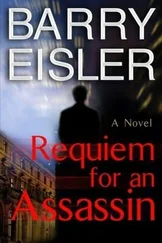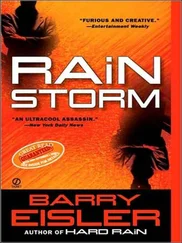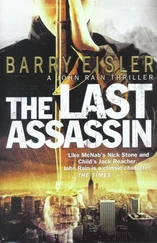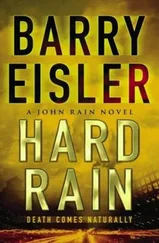“Your lead?” he asked, coming to his feet.
I struggled not to get impatient. It seemed so obvious to me. “Look, some nutcase was in here shooting up the place. Security guards are going to be converging any second. We’re running from it, same as anyone would.”
“Okay, you’re persuading me now.”
We each pulled a hat from a pocket. Mine was a baseball cap; Dox’s was for fishing. Witnesses tend to remember gross details only, such as shirt color or the presence of a hat, and elementary precautions like ours can save a lot of grief later.
We moved to the door. “Ready?” I asked.
“Right behind you, partner.”
I looked at him. He was grinning.
“Goddamnit,” I said, “we were the victims, remember? You need to look scared.”
“Man, I am scared!”
“Try to show it better,” I growled.
“Fuck, man, I’m telling you this is how I look when I’m scared!”
Our eyes locked for a moment. His grin didn’t budge.
I shook my head and said, “Here we go.”
I opened the door. The corridor was clear. No sign of Manny or the boy. Just outside the corridor, though, the mood among the dining crowd had clearly been disrupted. The people with good sense and experience with the sound of indoor gunfire were wisely heading down the escalators. The curious, the deniers, and the simply stupid were lined up and gawking. For their benefit, I turned my head back toward the bathroom and shouted, “They’re shooting in there! Somebody call a guard!”
I heard Dox add, “I’m scared! I’m scared!”
An unhelpful thought flashed through my mind- My partner is insane -but I kept moving. My quick scan of the crowd hadn’t revealed my biggest concern-that individual or handful of individuals you will always encounter in a crisis who, sometimes by instinct but more often by experience, are not fleeing and not in denial, but instead calmly watching and evaluating, and perhaps looking for an opportunity to intervene. Ordinarily, these people simply make better than average witnesses later on, although sometimes they can access some deep-seated protective impulse and actually attack. I kept my head down and avoided anyone’s eyes, and we joined the crowds hurrying down the escalator. In my peripheral vision, I saw two white-shirted security guards heading up opposite us. Neither had drawn his gun; they weren’t sure what the trouble was and weren’t yet taking it fully seriously.
On the second floor, the crowd was less agitated but still distracted. People were looking around, trying to figure out what had happened, what was the disturbance, whether they needed to do anything or if they could just get back to their shopping.
We moved laterally, heading in the direction of the next set of down escalators. As we walked, we each automatically removed the hats, then, one at a time, pulled off and balled up our outer shirts, which were navy blue. Underneath we both wore a second shirt, in cream-typical Filipino attire.
“We need to split up,” I said. “Big white guy, Asian guy, that’s about as much as people are going to remember, but it’s enough to ID us right now.”
“Yeah, I know.”
“Go straight to the airport. I’ll get the gear from the hotel. We’ll meet at the backup in Bangkok.”
“You saved my life back there, partner. You really did.”
“Bullshit.”
“That bodyguard would have drilled me clean if you hadn’t gotten to him first. I saw his eyes, and he meant business.”
I shook my head. There was no time to explain. And I still didn’t understand what had happened to me in there.
“Think those guys were Agency?” he asked. “They sure got there fast and they moved like pros.”
The agitation was behind us now; the next set of escalators, and the exits below, just a few meters away.
“That’s one of the things we need to find out,” I said. “But first we have to get out of Manila. I doubt Manny is going to report this to the authorities-it would mean too much attention for him. But I don’t want to stick around waiting to find out.”
We reached the escalators and paused for a moment.
“You go down here,” I said. “I want to lose the gun and the mag. I’ll drop them in a toilet tank in one of the bathrooms. With a little luck I can find some bleach or other cleaning supplies in a janitor’s cart and douse them first.”
He grinned like a schoolboy about to brag of a prank or some other exploit. “I guess I need to break my date with the girl at the concession stand,” he said.
In the craziness of the moment, half of me wanted to laugh. The other half wanted to strangle him. I looked at him for a moment, shaking my head, and in the instant before I walked away his grin actually broadened.
THE ARRIVALS AREA of Tel Aviv’s Ben Gurion Airport was crowded, bustling, and noisy. Tourists in tee-shirts and shorts jostled with haredi, the tremblers before God, in their black suits and hats. Announcements in English and Hebrew reverberated off the long concrete walls. The sun was setting beyond the western windows, and for a moment the terminal’s interior burned headache bright with its sideways orange glow.
Delilah no longer felt comfortable here. Although her employer arranged for her to return at least annually to visit her parents and other relatives, the years of living a foreign cover had pulled her inexorably from the shores of the Levant, farther and farther until finally she had lost sight of land. This was her country, but she was no longer supposed to be here. The extraordinary security measures that accompanied these visits-false papers, disguise, countersurveillance-were testament to that. She was more comfortable now ordering pain au chocolat in French in Paris than she was giving instructions to a taxi driver in Hebrew in Tel Aviv. She told herself that this was the natural and perhaps not undesirable consequence of her commitment to her work, but still it was odd, to feel that you were forgetting who you are, or anyway who you used to be. The point of it all could wind up seeming so remote, so abstract. She wondered at times whether other operators were similarly afflicted, but knew she would be wise to discuss her concerns with no one. Regardless, she understood that this growing sense of estrangement from things that had once seemed inalienably hers would be known, in other endeavors, simply as the cost of doing business.
Her business was what the domestic media called sikul memukad , or “focused prevention,” a construction she preferred to the more straightforward “assassination.” The former was, to her thinking, more descriptive, and more associated with its purpose of saving lives than with its means of snuffing them out. She wasn’t one of the trigger pullers, but at times she wished she were. After all, the men with the guns had the easy side of the division of labor. They never had to know the target. They didn’t have to spend time with him. They certainly didn’t have to sleep with him. They got close only once, only for an instant, and then they were done and gone. Emotionally, it was the difference between parting after a one-night stand, on the one hand, and dissolving a marriage, on the other.
Still, she was quietly proud of her sacrifices, proud that she made them for her own reasons and not for the recognition of her peers. Recognition, that was funny. Notoriety would be more like it. Her superiors acknowledged her unique talents and employed them with ruthless calculation, but deep down, she knew, they looked at her as somehow stained by what they called upon her to do. The best among management was merely uncomfortable with a woman who wormed her way into the lives of her victims, who slept with the monsters night after night, who knew even as she took them into her body that she was guiding them to their deaths. Management’s worst, she suspected, thought whore .
Читать дальше
